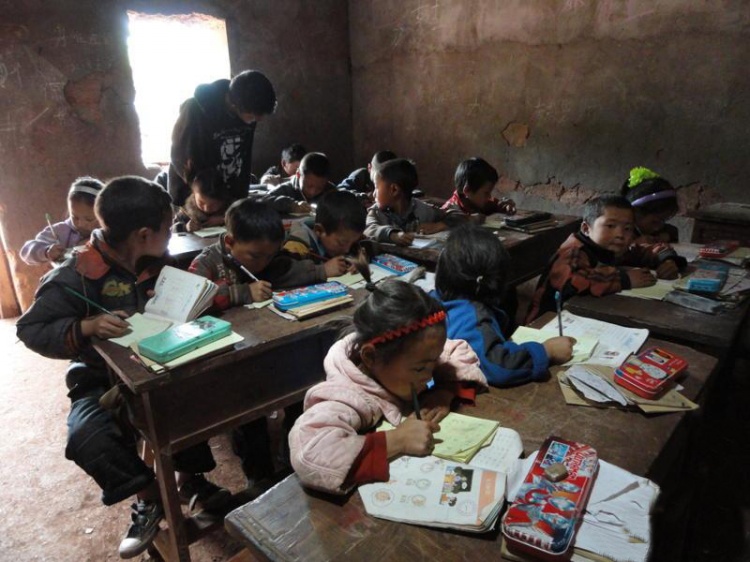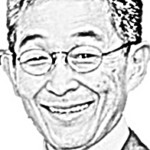Tagged: acceptance
- For Caregivers
- For Researchers
- Find A Support Organization
- Find Survivors
- First 6 Months
- Where to find help
- Memory loss
- "Eric Dodge thread"
- Our Tuesday "Bus Station" meeting
- Can expressive aphasia improve over time? I'm asking for my brother, he is 17 years old and he had his stroke on the 21st of August, the stroke affected his right side and the opposite side of his brain. so he can't speak he uses gestures to respond and his right side is not working.
- Challenges After Leaving the Hospital
- A few things about using the Strokefocus Forum
- Real Challenges
- Neurological Recovery
- Debt Relief
- As a separate note, in case you do not want to receive emails.
- Spasms
- tremor
- How do we find support from organizations
- Stroke prevention
- good morning I still have cramps on my hands
- recovery after 5 yrs.
- Palliative care for Stroke Survivors and their families in South Africa
- What's your best hack?
- International Stroke Day
- Am I too sensitive?
- finding work opportunities
- Nerve pain
- Finance
- Accepted? Or Tolerated?
- Kids will play a very big role
- Kids are the key
- First 6 months is crucial
- Guilt is my concern with the stroke
- Let's get real
- Stroke hereditary?
- Recovery
- Aphasia
- Looking for Love
- Aphasia: A loss of words, not thoughts
- Discs for the car
- Caregiver post
- Care Giving
- Please help me find a job as a caregiver I am a quliefied certified caregiver…
- Seeking employment
- Arm
- Support group
- Stroke Help and Wheelchair
- DRIVING
- Recovery
- Get involve and engange with stroke support organization
- Anyone from Zambia?
- Occupational Therapy Around Chatsworth Durban KZN
- Occupational Therapy Around Chatsworth
- Frustrated
- Issues of the mind.....
- Arm and Leg mobility
- Child supporting parent
- Arm and Leg mobility
- Therapy options
- Disability Benefits options
- Confused
- Staying positivr post STROKE
- Staying positivr post STROKE
- The new Dating forum
- Relationship
- Emotions
- Disability Benefits
- Mindfulness
- Mobility
- Sleeping
- Diet
- New Products
- Recipes
- First 6 Months
- Ask Pros
-
CreatorTopic
-
July 4, 2020 at 1:10 pm #36825
 Strokefocus AdminParticipant
Strokefocus AdminParticipantMy friend Nick is a very talented statistician who once struggled to connect with his son Johnny.
Two years ago, Nick’s wife Deborah arranged a trip to take Johnny to visit the village in which Nick grew up.
Nick has a heavy accent. He is not the most polished. Nick works so much that he often misses important events of Johnny.
As Johnny grew up in a very comfortable middle class neighborhood, he and Nick started to drift apart. They could go on for days without talking. Deborah has managed to keep the family in peace.
The trip took place in the summer, which was hot and humid. Two years before their visit, the village finally got running water, but the whole village had to share one tap. There was no clean toilet. No air conditioning. Not even a decent electric fan.

“Dad made his way to America from this village?”
“Yes,” Deborah said.
Nick started college in 1987. Upon graduation, he received a full tuition scholarship to earn a PhD from a state university in the United States.

Before 1990, only 1% of the high school graduates could enter a college in China. In the poor rural areas like where Nick came from, the ratio was even lower. Due to lack of funding and widespread mismanagement, colleges were far and few.
It was more than the boy could imagine.

Deborah further explained to Johnny: ”Your dad did not even know how English was pronounced until coming to America. Nobody taught him how to dress, how to use a fork, or how to play baseball when he was at your age. The village had only 4 hours of electricity supply everyday when he was finishing high school. But your dad was the smartest, most hardworking and most honest kid this village had ever seen.
Now he wants you to have the best education we could afford. Your dad is not perfect. He does not like to talk about himself. But he is doing everything possible so that you could live a dream he could not have at your age.”
That trip totally transformed the relationship between Nick and Johnny. It brought them really close. Nick is no longer the eccentric “old man” whose broken English and sometimes strange manners Johnny has to put up with. Nick is the inspiration Johnny wholeheartedly embraces.
This is a classic example of transforming “being tolerated” into “accepted”.
Very often, they are confused to be the same, but the difference can not be greater.
When Nick was living peacefully with Johnny as they were drifting apart, struggling to connect, he was being tolerated.
When Johnny got really close to Nick after spending just one day in the poor village with Deborah, Nick is accepted.
Being tolerated is rather injurious. It reminds people of the painful void of acceptance. It confines us to a lonely oblivion, numbing and helpless. It is a silent rejection.
On the contrary, feeling accepted is empowering and healing. We are again embraced by those we care about.
As a stroke survivor, are you feeling tolerated or accepted by your own family and friends? Caregivers, what do you think? If you would not mind, please share your story.
-
CreatorTopic
-
AuthorReplies
-
-
 Joyce HoffmanParticipant#40033
Joyce HoffmanParticipant#40033
August 18, 2021 at 8:50 amNobody completely accepts stroke, even your family and friends, and there
are degrees to which stroke is tolerated, depending on the selflessness and
love of those tolerating the stroke. Remember my phrase: Having a stroke
is easy; it’s all the things that come after that are difficult. -
 Ignatius HimbalaParticipant#40029
Ignatius HimbalaParticipant#40029
August 18, 2021 at 3:15 amAs a survivor, the exposure is positive and helpful .I appreciate and
accept my condition None victims may just tolerate me. The exposure is in a
way lobbying for recognition to be accepted and not tolerated. -
 Strokefocus AdminParticipant#40028
Strokefocus AdminParticipant#40028
August 18, 2021 at 12:50 amIgnatius, do you see this exposure as a positive, helpful, or not so
positive? -
 Ignatius HimbalaParticipant#40027
Ignatius HimbalaParticipant#40027
August 17, 2021 at 10:35 pmAs a matter of fact we the survivors are exposed. This app does not only
exposé but it mitigates our respective conditions -
 Sara RiggsParticipant#39991
Sara RiggsParticipant#39991
August 12, 2021 at 2:46 pmI’m struck by the thought that this question applies to ourselves as survivors…do we accept our new selves, or simply tolerate them?
-
 Strokefocus AdminParticipant#40020
Strokefocus AdminParticipant#40020
August 16, 2021 at 8:03 pmSara, good point.
The original post also pointed to a phenomenon that being accepted and being tolerated is often confused by many. Survivors are often tolerated but not truly accepted in many circumstances. And what could be done to change that.
-
-
 Barry NkosiParticipant#36854
Barry NkosiParticipant#36854
July 8, 2020 at 3:50 amHi.. sorry for the late response. I have been having a brain fog of late because of the lock down. My journey has not been easy with my family.. I suffered a stroke when I seemed to be very healthy and living a healthy life style. Growing up I was always
that strong willed kid that could overcome anything, beat asthma when I was 9 yrs because I refused not to play sportWas shot in my hip when I was working part time as bouncer.. I was told I would never walk again.. I refused to accept that and pushed had to be able to walk.. so in a nut shell my sister who became my caregiver could not understand how this time I seemed
a bit defeated! She would ask me stuff I had no recollection off or speak about my past life and how I was her hero.This went on to a point were her daughter called me a retard because they saw me as broken man.
I moved out of her home and went back to my apartment and that’s when the warrior in stood up.. though I could not stand physically for a long time.. I stood up on the inside and trained my mind first then my body followed. I trained my self how to get up
when I fall because Ididnt use a walking add.Being in that zone was easy because the triggers came from my past athletic life.
By the the time most of my family members saw me again after six month’s they believed that I had a mild stroke and not a major stroke. My will to survive in their eyes is my enemy emotionally. Pre stroke I believe I appeared strong and I was driven sports
and I believed I was a gladiator who lived for the hunt: post stroke I discovered a diffrent version of me.. I discovered who I am… and I found that I am the enemy of my own identity. People who identified with the old me did not like who I had become…
a humanitarian in a league of gladiators.Growing up I was the guy you went too when people mess with my brothers. It was tough for them to accept that that version of me is gone.
Sent from my BlackBerry 10 smartphone.
From: Strokefocus Member Services
Sent: Monday 6 July 2020 18:21
To: coachbreezy@outlook.com
Reply To: strokefocusforum+usc_KzU1N61JM7E0MKgpMjazMDGpKQFSRqYA@gmail.com
Subject: Daniel Gu replied to “Accepted? Or Tolerated?” on Get real: “Barry, welcome to the community! Thanks for speaking up. When you say your family members think “ -
 Phanuel MabbolaKeymaster#36853
Phanuel MabbolaKeymaster#36853
July 6, 2020 at 11:00 pmThis is very crucial, self advocacy is very important in stroke recovery, every one should apply it and be Pro-active towards recovery.
I Iike the spirit of most of the survivors I have been involved with in their recovery, their effort and courage towards their rehabilitation they have been so active that they always accepted the challenge but mainly without much help or support from family members.Such is the self advocacy which Is needed from our stroke survivors.
On the other hand I agree there is much need for education with family members to the stroke survivors and friends. To accept and not just tolerate stroke survivors.
Awareness is very much needed, we need to engage the community and educate people on the changes which comes alongside stroke. -
 Phanuel MabbolaKeymaster#36852
Phanuel MabbolaKeymaster#36852
July 6, 2020 at 10:30 pmThis is great idea
-
 Strokefocus AdminParticipant#36851
Strokefocus AdminParticipant#36851
July 6, 2020 at 7:00 pmLove the ideas! -
 Kele MotshwaneParticipant#36850
Kele MotshwaneParticipant#36850
July 6, 2020 at 6:10 pmI concur and I would like to add the following:Washing dishes not using a dishwasher Putting on a head scarf using 1 hand Buttoning your pants after using the bathroom
-
 Strokefocus AdminParticipant#36849
Strokefocus AdminParticipant#36849
July 6, 2020 at 10:15 amGene,So nice to have you validate the idea.Both the South African Team and the Oregon team (The NW Brain Network) have offered some very innovative ideas.Cooking Contest– Caregivers and families are invited to a cooking contest.– Stroke survivors will be watching in the audience as their family members cook. So are the friends.– Do just one poached egg with one hand wearing a glove.– Let’s find out who cooks the bestPutting pants on– A contest in which participants are asked to put the pants on with only one hand.– The hand must be in the glove.What else?Stroke survivors and caregivers, offer your thoughts. Let’s have some fun! -
 Eugene SekiguchiParticipant#36848
Eugene SekiguchiParticipant#36848
July 6, 2020 at 10:00 am7/6/20
about 11:00 am pdt
Hi Dan,
I’m going to think about it all.
In the meantime, I like the glove idea. The experience can be written about. Let’s make the “glove time” longer. I think that reflecting on it will produce some good or great ideas. We can make it home work from
one of our group meetings.I think that the “glove” experiment is worth doing because it shows how the deficit manifests for each of us.
Second idea: The education piece must be started as soon as possible (we can only teach based on present knowledge but that’s okay). I think that normal aging, prevention of brain injuies and strokes, and first aid
for the aforementioned should be taught in all the schools at every level. Where do we start?I love philosophy and some must be done, but I also think I’m a do’er.
Thanks,
Gene
-
 Strokefocus AdminParticipant#36847
Strokefocus AdminParticipant#36847
July 6, 2020 at 9:00 amClem, I hear you.Let’s not be oblivious to the other side of the picture my friend.When the tuition bill arrives for my very talented daughter, I know there is no way we could pay it off without the income my wife brings in. She found herself a nice job after my stroke. Overtime is a norm for her now.When her best girlfriend Lana visited us after her last trip to the US 5 years ago, Lana was shocked to see how much gray hair my wife has now. “What did you do to Hong?” Lana asked me jokingly. They are of the same age. Hong used to look much younger than Lana. Now without dying her hair, Hong could be confused as Lana’s aunt.Will these go away with a positive determination? I wish.Will these keep frustrating a man who loves his wife and family dearly? Yes, especially realizing if I knew just a little more about stroke, maybe all these could have been avoided.When a sharp neural pain wakes me up in the mid night, I pray to the Lord to give me guidance if I should wake my wife up to send me to the ER again or I should sleep it away. Is this a positive experience? I wish this happens to no one. And I can only pray that whatever choice I make, its negative impact on my wonderful wife would be the minimum.After I shared my story in greater detail with my girl, she was in tears. It inspired her instead of weakening her. I am also wondering what I could do to enlighten her with more stroke awareness to help her best avoid what I have gone through.To stay positive means we face the facts and learn to handle them accordingly. Knowledge is power, especially knowledge gained through our own experience.I enjoy what our friends are sharing. I am humbled by their trust in this platform. -
 Strokefocus AdminParticipant#36846
Strokefocus AdminParticipant#36846
July 6, 2020 at 8:55 amClem, I hear you.Let’s not be oblivious to the other side of the picture.When the tuition bill arrives for my very talented daughter, I know there is no way we could pay it off without the income my wife brings in. She found herself a nice job after my stroke. Overtime is a norm for her now.When her best girlfriend Lana visited us after her last trip to the US 5 years ago, Lana was shocked to see how much gray hair my wife has now. “What did you do to Hong?” Lana asked me jokingly. They are of the same age. Hong used to look much younger than Lana. Now with dying her hair, Hong could be confused as Lana’s aunt.Will these go away with a positive determination? I wish.Will these keep frustrating a man who loves his wife and family dearly? Yes, especially realizing if I knew just a little more about stroke, maybe all these could have been avoided.When a sharp neural pain wakes me up in the mid night, I pray to the Lord to give me guidance if I should wake my wife up to send me to the ER again or I should sleep it away. Is this a positive experience? I wish this happens to no one. And I can only pray that whatever choice I make, its negative impact on my wonderful wife would be the minimum.After I shared my story in greater detail with my girl, she was in tears. It inspired her instead of weakening her. I am also wondering what I could do to enlighten her with more stroke awareness to help her best avoid what I have gone through.To stay positive means we face the facts and learn to handle them accordingly. Knowledge is power, especially knowledge gained through our own experience.I enjoy what our friends are sharing. I am humbled by their trust in this platform. -
 Strokefocus AdminParticipant#36845
Strokefocus AdminParticipant#36845
July 6, 2020 at 8:50 amClem, I hear you.Let’s not be oblivious to the other side of the picture.When the tuition bill arrives for my very talented daughter, I know there is no way we could pay it off without the income my wife brings in. She found her a nice job after my stroke. Overtime is a norm for her now.When her best girl visited us after her last trip to the US 5 years ago, she was shocked to see how much gray hair my wife has now. “What did you do to Hong?” she asked me jokingly. They are of the same age. My wife used to look much younger than her. Now with dying her hair, my wife looks like her aunt.Can these go away with a positive determination? I wish.Will these keep frustrating a man who loves his wife and family dearly? Yes, especially realizing if I knew just a little more about stroke, maybe all these could have been avoided.When a sharp neural pain wakes me up in the mid night, I pray to the Lord to give me guidance if I should wake my wife up to send me to the ER again or I should sleep it away. Is this a positive experience? I wish this happens to no one. And I can only pray that whatever choice I make, its negative impact on my wonderful wife would be the minimum.After I shared my story in greater detail with my girl, she was in tears. It inspired her instead of weakening her. I am also wondering what I could do to enlighten her with more stroke awareness to help her best avoid what I have gone through.To stay positive means we face the facts and learn to handle them accordingly. Knowledge is power, especially knowledge gained through our own experience.I enjoy what our friends are sharing. I am humbled by their trust in this platform. -
 Strokefocus AdminParticipant#36844
Strokefocus AdminParticipant#36844
July 6, 2020 at 8:20 amBarry, welcome to the community! Thanks for speaking up.When you say your family members think they misunderstand you thinking you pretend to be disabled, can you elaborate more?Your comments resonate with me dearly. I myself have been experiencing something similar. I walk everyday a few miles around our community. As my walking gets better, many of my neighbors believe I am almost fully recovered. They could not understand why I do not go back to my old job.I myself know why.Yes. I have been very hard to walk normal. But I know it is not. The 3 miles which would take me less than 1 hour prestroke now takes 2 hours when I try my best. My neighbors will not see how I struggle in typing and reading. I could not wear the dress shoes any more or I could not keep balance. The once energetic and tireless tech executive they know could no longer do his old job.This is not something one could possibly overcome by “staying positive”. When my girl’s college tuition bill is due, can I mail the university registrar a proof of my positive attitude, and get a waiver? Of course not. It has to be paid with my wife’s over time. By the way, before stroke, she was a housewife involved heavily with our community. Our neighbors still love her.Sleeping disorder, headache and numbness in the limbs will not go away with a positive determination. And some times, when a sharp neural pain wakes me up in the night, I have to wonder if this is an ominous warning sign to send myself to ER again. If I should also wake up my wife who is sound asleep after a day of very hard work.The loss is real. And often we hold it to ourselves to protect our friends and family. But now I start to wonder, without letting them know what we are going through, are we truly helping them grow. Are we truly bring stoke awareness to those who love us dearly? -
 clemsuderParticipant#36843
clemsuderParticipant#36843
July 6, 2020 at 7:45 amI have watched and listened to our attempts to help one another. It is sad that so many struggle with trying to get others to give them positive feelings. The truth that needs to be taught is that only each individual can determine for themselves what they can feel and WHY. The best we can do is make up our own mind to make each day the best it can be given our unique circumstance. If you want your day to be better you must find those who care enough to allow others to experience life and overcome their challenges, you can help them to overcome but they must choose the path.many times our caregivers and families are trying to force us to choose to overcome. How you interpret thier actions is your own. You ask for empathy but if you do not practice it yourself do not expect any in return. God gave you the day what you do with it and how you feel about it is up to you. Your circumstances will not change till you decide to change them or, perhaps look at them differently.
Sent from my iPad
-
 alisonParticipant#36842
alisonParticipant#36842
July 6, 2020 at 5:35 amI have been teaching stroke recovery for 15 years, following my own stroke 18 years ago. I teach both survivors and caregivers. I agree. There is a lot of need for education for everyone. As we ask for empathy, it’s important to remember that the caregivers and family members are suffering too. Empathy and understanding goes both ways. And for families there is a lot of fear and resentment. Fear that if this has happened to us, it could happen to them. This fear is so deep in most people that it’s never examined. Daniel’s example of taking the son to the country origin of his father is very apt. It’s as if once we have experienced a stroke, we have entered a foreign country. The common references no longer match. The common reference of tying a shoe that everyone understands, has changed and maybe changed dramatically. There is no way for the caregiver to truly understand how this common reference has changed. You cannot explain it to them. Not having experienced it, their mind/body/spirits have no way to feel what it is like. Putting on a glove, or tying the hand behind the back is one way that this is approximated. But even that is only an approximation. And it is true that unless we have been a caregiver of someone with a neurological injury we also cannot know what that experience is like.What we can do is start by acknowledging that everyone in the situation is struggling and learn to listen to one another with our hearts as well as with our ears. When we open in that kind of empathy, with a willingness to admit that we do not know what anyone else is experiencing and remember that all of us are doing our best and all of us just want to be happy and at ease, we can hold one another with greater care. This takes a lot of practice and patience but it’s doable.Alison
-
 Joyce HoffmanParticipant#36841
Joyce HoffmanParticipant#36841
July 6, 2020 at 2:20 amJH <hcwriter@gmail.com>1:35 AM (24 minutes ago)to strokefocusforum+usc_KzU1qEkzsTQwqCkyNrMwNq8pAVJGpgA=Thank you, all, for your comments. Five years ago, I wrote a post on empathy and sympathy. https://stroketales.blogspot.com/2014/04/empathy-and-sympathy-theres-difference.htmlI think empathy and sympathy are akin to acceptance and tolerance. As a former professor, I realize the importance of education and, as a stroke survivor, the two–education and acceptance/tolerance, come into play in teaching others what it means to be accepted, not tolerated. Perhaps people would learn and change to have acceptance as the preferred method when all they were doing is tolerate.
-
 Joyce HoffmanParticipant#36840
Joyce HoffmanParticipant#36840
July 6, 2020 at 2:20 amThank you, all, for your comments. Five years ago, I wrote a post on empathy and sympathy. https://stroketales.blogspot.com/2014/04/empathy-and-sympathy-theres-difference.htmlI think empathy and sympathy are akin to acceptance and tolerance. As a former professor, I realize the importance of education and, as a stroke survivor, the two–education and acceptance/tolerance, come into play in teaching others what it means to be accepted, not tolerated. Perhaps people would learn and change to have acceptance as the preferred method when all they were doing is tolerate.
-
 Barry NkosiParticipant#36839
Barry NkosiParticipant#36839
July 6, 2020 at 2:20 amI am tolerated by my family. My sister at some point ask me to snap out of it.. because she thought I was pretending to be disabled. Most family members struggle with accepting that fact when you have survived stroke sometimes one’s personality changes.
The Barry they used to know is inside of me but not so strong as before. When they talk about him I feel like they talking over me but not to me.
My name is Barry Nkosi I suffered a stroke attack in 2014 that affected my left side of the brain and the right side of my body.
Sent from my BlackBerry 10 smartphone.
From: Strokefocus Member Services
Sent: Monday 6 July 2020 09:00
To: coachbreezy@outlook.com
Reply To: strokefocusforum+usc_KzU1N61JM7E0MKgpMjazMDavKQFSRqYA@gmail.com
Subject: Daniel Gu replied to “Accepted? Or Tolerated?” on Get real: “Gene, Great point. To make this education work, it needs to be: Simple and a little bit fun. For “ -
 Strokefocus AdminParticipant#36838
Strokefocus AdminParticipant#36838
July 5, 2020 at 11:37 pmWe are having a very interesting discussion on how to get survivors truly accepted.
We survivors share the responsibility to bring awareness to friends and family members so that they can relate to what we are experiencing.
More people are added to this discussion. Please refer to the story of Johnny and Nick.
When replying, try to add paragraph breaks so it easier for everyone to read. Let us know what we can do to improve.
Our friends in South Africa and Ghana, let’s hear what you think. You can add your comments just by replying to this email.
-
 Strokefocus AdminParticipant#36837
Strokefocus AdminParticipant#36837
July 5, 2020 at 11:00 pmGene,
Great point.
To make this education work, it needs to be:
Simple and a little bit fun. For friends and families (caregivers).
Based on an idea submitted by the South African Team, how about something like this: Ask people to wear a glove on their non-dominant hands. A right handed individual will wear the glove on the left hand. A left handed individual will wear the glove on the right hand.In the next 2 hours, people can only use the hand with the glove to do things, including sending emails, answering the phone, tying shoes and putting on a tie.
This is the easiest way to expose people to the experience of post stroke disability. To quote the South African team who came up with the idea, the experience is to turn sympathy into empathy. Acceptance comes with empathy.Survivors and caregivers, what are your thoughts?
-
 Eugene SekiguchiParticipant#36836
Eugene SekiguchiParticipant#36836
July 5, 2020 at 6:30 pm7/5/20
about 7:20 pm pdt
Hi Dan,
I like the way you have developed the discussion topics.
Kele has the right idea. Education. If we get rid of ignorance, tolerance becomes acceptance.
I think that acceptance would be a better place because with acceptance, the ignorance
in tolerance is mostly eliminated.
I think that tolerance still supports some ignorance.
I’ve always said that education of the masses is good for everyone.
Thanks for letting the juices flow.
Gene
-
 Strokefocus AdminParticipant#36835
Strokefocus AdminParticipant#36835
July 5, 2020 at 12:35 pmWhen Johnny sees where Nick’s frustrating accent comes from, it no longer frustrates him. It inspires him.
Let’s find our Deborah to make the transformation. Our Deborah might be a special friend, might be a support group, or might be an innovative program. She will for sure be part of this community. -
 Strokefocus AdminParticipant#36834
Strokefocus AdminParticipant#36834
July 5, 2020 at 12:30 pmKele, how wonderful!
Let’s extend the invitation to everyone who will benefit from this revelation. May everyone inspired by Deboran.
When we bring our family members to this side of the wall, the acceptance will not only make us a lot stronger, able to heal to the potential, it will also be the best way to spread awareness of stroke.
Stroke survivors and caregivers, please speak up. Your words are the most precious gift to this community. -
 Kele MotshwaneParticipant#36833
Kele MotshwaneParticipant#36833
July 5, 2020 at 12:05 pmThanks Daniel for making me see this differently it is as much my duty to get my family on this site so that they can understand what we feel like when we feel like we are not accepted. In the past I even considered moving and going to be a caretaker in a shelter or something just to get away and start afresh somewhere far away and now with this platform I should get them to register on PDSS so they can voice their frustrations too because I am sure that I also have flaws that frustrates them. I will convince my family to register and be part of the discussions.
-
 Strokefocus AdminParticipant#36832
Strokefocus AdminParticipant#36832
July 5, 2020 at 11:05 amKele, you just highlighted a major gap we need to close.
We survivors crave for acceptance. We are dying for it every waking minute down to our heart. But sadly it seems much easier to find acceptance among other survivors than our own kids.
Therefore, working with other survivors not only gives us meaning to our new life, but also provides a peaceful sanctuary for our tired soul.
While this provides relief, it also perpetuates a numbing pain. Over time, a wall erects separating those who accept us from those who tolerate us. Sadly our family members are not where we want them to be.
To bring Johnny to this side of the wall, Deborah realized that she could not count on Johnny and Nick to talk it out in their spacious and comfortable American home. She had to expose Johnny to something the boy was never aware of. Deborah’s strategy worked beautifully.
What can we learn from Deborah? Think what that will do to raise stroke awareness among our own kids, when we bring everyone we love to this side of the wall, just like Deborah did to Johnny.
-
 Mary NicholsonMember#36831
Mary NicholsonMember#36831
July 5, 2020 at 7:25 amKele,
Through my own stroke and recovery I started Healings in Motion. The focus is not on super heroes or those who have everything together -
 Kele MotshwaneParticipant#36830
Kele MotshwaneParticipant#36830
July 5, 2020 at 2:05 amI feel like I am tolerated and not fully accepted by my family, I will give you an example of why I say so I have been told that I am capable of using one hand to do chores around the house and it frustrates me to think that before the stroke I was able to do a lot of things by myself for my family and now that I can’t do things like washing dishes the way that I want them to be done. I am fortunate though to have my helper who was supposed to have retired at the end of the year I had the stroke and she decided to stay saying that she can’t leave me when I still need help with a lot of things. She is very understanding and caring and she is more like a mother to me whenever I share my frustration with her about not being able to do certain things she is always there to say that when I was hospitalized they all prayed for my life to be spared and she is grateful that I am alive and tries her utmost best to make me feel comfortable. She is also like a counselor because she allows me to share my feelings with her and she encourages me to carry on and not allow certain things to get to me.I thank the person who raised this question as it got me to open up about something that hasn’t been sitting well with me lately and trying to talk about how some of these make me feel I am told that I like to always see myself as a victim so I keep a lot of things bottled up. I do a lot of work with strangers listening to their problems and helping them to work through their issues. I also do a lot of introspection like am I doing this work because it makes me feel good afterwards to be told that my intervention has helped a lot of people to look at their lives differently and even not consider suicide as an option anymore. I sometimes ask myself am I doing all that because I want to feel that I am not useless to the world and I am still able to contribute by giving others hope when their lives are bleak.
-
 Strokefocus AdminParticipant#36828
Strokefocus AdminParticipant#36828
July 4, 2020 at 5:40 pmMary and Cam, thanks for the input. This is great.
Deborah shared with me more details about their trip.
That night, Johnny was biten by so many mosquitos that his left thigh was red and swollen. His Tshirt was drenched with sweat. And there was no place to take a shower. There was no bathroom. Johnny had to find a bush to do it and cover cover whatever he left with dirt and fallen leaves. The boy begged mom to leave, and Deborah reminded him Nick lived here for 16 years.Imagine Johnny and Nick had a heart to heart conversation in their nice middle class home in America, air conditioned, with a glass of soft drink. Will Johny ever learn how his dad did it? Without filling such a critical gap in understanding, will Johnny embrace Nick like he is doing now?
Deborah built a bridge bringing Johnny from side of tolerating Nick to side of embracing Nick. Our friend in South Africa has a very cool idea with a similar goal. They want to bring caregivers, families and friends from tolerating survivors to embacing them.
The South African team would like invite people to wear a blue glove on the less used hand. Then ask them to do things only with that hand for at least a few hours. Needless to say, people will struggle. Then they will ask, imagine your loved one using only one hand to do things for the rest of the life, and despite that, they are still emailing you happy birthday cards and cooking for you.
To embrace is to accept. Before people come to the side of acceptance, a crucial gap has to be filled, not conceptually but experientially. As survivors and stroke support groups, what can we do?
Survivors and caregivers, share your thoughts. -
 Mary NicholsonMember#36827
Mary NicholsonMember#36827
July 4, 2020 at 5:00 pmSent from Zoho Mail on iPhone
The challenge for me was reminding people that I had a stroke and couldn’t do what I use to from dancing and being turned because of headaches or even a friend determined that I could manage her political campaign. People seeing me and insisting that I am the same. Acceptance has been a challenge for friends and family. Initially there were those who felt my life was super consumed in stroke, as an advocate and educator. They didn’t come around as much, but as soon as a love one has a stroke, they call. I have loss some friends and made new ones. It balances out.
-
 Compton CamParticipant#36826
Compton CamParticipant#36826
July 4, 2020 at 4:05 pmI believe I have friends and family on both sides. I have one specific family member that just doesn’t get my stroke, I finally had to disengage from her. I also, must say other family tried to understand but they tried. I have let go of anyone who just tolerated me and there weren’t many. I was just approached by another friend asking about fatigue of another stroke survivor. He didn’t get it but was trying to. That is a keeper as far as a friend. He could see fatigue and knew it happened and was asking why, how, whatever. That’s the best.
Sent from my T-Mobile 4G LTE Device
-
-
AuthorReplies
- You must be logged in to reply to this topic.







